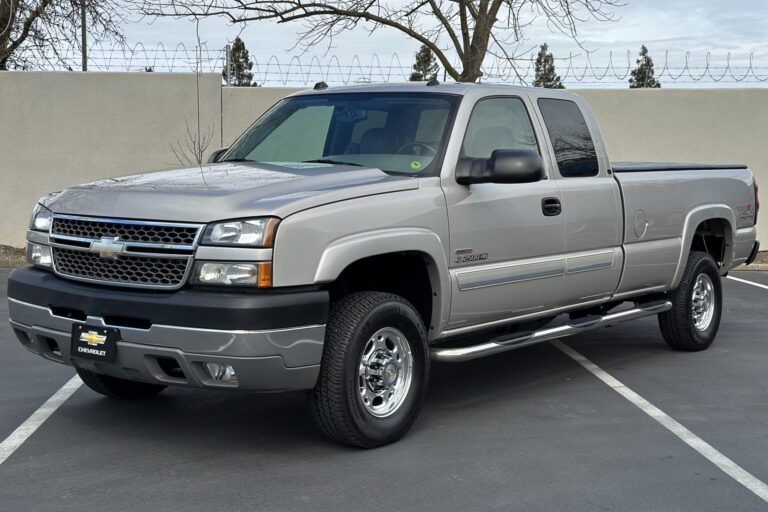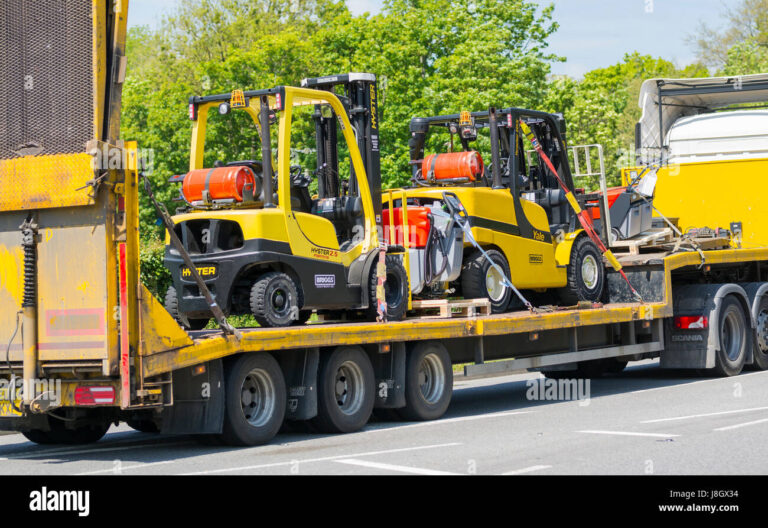Super Trucks For Sale: Your Ultimate Guide to Unlocking Unrivaled Power and Capability
Super Trucks For Sale: Your Ultimate Guide to Unlocking Unrivaled Power and Capability cars.truckstrend.com
In a world increasingly defined by specialized needs and extraordinary demands, standard vehicles often fall short. This is where "Super Trucks" emerge from the realm of the ordinary, standing as titans of power, unparalleled capability, and specialized functionality. More than just large vehicles, super trucks are purpose-built machines designed to conquer tasks that would overwhelm conventional trucks, from hauling immense loads across continents to navigating the most treacherous off-road terrains, or even serving as mobile command centers for global expeditions.
This comprehensive guide, "Super Trucks For Sale," delves deep into the fascinating world of these automotive giants. Whether you’re a commercial operator seeking to optimize your fleet, a heavy-duty enthusiast with a passion for extreme performance, or an adventurer planning an epic overland journey, understanding the nuances of super trucks is paramount. We’ll explore what defines these formidable machines, why they are indispensable for certain applications, where to find them, and the critical considerations involved in making such a significant investment. Prepare to embark on a journey into the realm where power meets purpose, and ordinary limits cease to exist.
Super Trucks For Sale: Your Ultimate Guide to Unlocking Unrivaled Power and Capability
What Defines a "Super Truck"? Beyond the Ordinary Pickup
The term "Super Truck" isn’t a single, officially recognized vehicle class, but rather an umbrella term encompassing a range of vehicles that dramatically exceed the capabilities of consumer-grade pickup trucks. They are distinguished by their sheer scale, robust engineering, and specialized design tailored for extreme demands.
Typically, a "Super Truck" possesses one or more of the following characteristics:
- Extreme Payload & Towing Capacity: Far surpassing even heavy-duty consumer trucks (like Ford F-350/Ram 3500), super trucks are built to handle massive Gross Vehicle Weight Ratings (GVWR) and Gross Combined Weight Ratings (GCWR). This includes Class 8 semi-trucks (over 33,001 lbs GVWR), but also extends to Class 4-7 commercial chassis trucks (e.g., Ford F-450/550/600/650/750, Ram 4500/5500, Chevrolet Silverado/GMC Sierra 4500HD/5500HD/6500HD) when configured for severe service.
- Unrivaled Engine Power & Torque: Equipped with industrial-grade diesel engines (or sometimes large gasoline engines for specific applications) designed for sustained high output, these trucks deliver colossal horsepower and, more importantly, immense torque at low RPMs for effortless hauling and climbing.
- Heavy-Duty Chassis & Drivetrain: Featuring reinforced frames, multi-leaf spring or air suspension systems, commercial-grade axles, robust transmissions (often automated manuals or heavy-duty automatics), and advanced braking systems (like air brakes), these components are engineered for relentless punishment and longevity.
- Specialized Configurations: Many super trucks are sold as chassis cabs, ready to be upfitted with custom bodies such as dump beds, crane mounts, concrete mixers, flatbeds for heavy equipment, wrecker bodies, refuse compactors, or even elaborate expedition vehicle shells.
- Off-Road Prowess (for specific types): While many super trucks are designed for pavement, a significant subset (like military surplus vehicles, specialized 4×4 or 6×6 platforms, or custom overland rigs) are built to tackle the most challenging off-road conditions, featuring high ground clearance, multiple locking differentials, and specialized tire setups.

In essence, a super truck is a tool designed for a specific, demanding job – one that requires more strength, durability, and specialized features than any standard vehicle can offer.
Why Buy a Super Truck? Benefits & Applications
The decision to invest in a super truck is driven by specific needs that only these specialized vehicles can fulfill. Their benefits extend across various sectors:
-
Commercial & Industrial Applications:
- Long-Haul & Freight: Class 8 semi-trucks are the backbone of logistics, transporting goods across vast distances.
- Construction & Infrastructure: Dump trucks, concrete mixers, crane trucks, and heavy equipment transporters are indispensable on job sites.
- Specialized Services: From oil and gas exploration to logging, waste management, utility maintenance, and emergency services (fire, rescue), super trucks are custom-built for these demanding roles. Their high GVWR allows them to carry specialized heavy equipment, while robust powertrains ensure reliability in harsh environments.
- Fleet Optimization: For businesses with significant hauling or specialized service requirements, super trucks offer superior payload capacity, reducing the number of trips needed and improving operational efficiency.
-
Recreational & Personal Use:
- Extreme RV & Boat Hauling: For owners of large fifth-wheel RVs, multi-horse trailers, or massive powerboats, a heavy-duty pickup (like an F-450/550 or Ram 4500/5500) or even a converted semi-truck offers the stability, braking power, and legal towing capacity that standard pickups simply cannot match.
- Overland & Expedition Vehicles: Custom-built expedition vehicles, often based on commercial 4×4 or 6×6 chassis, provide unparalleled durability, range, and self-sufficiency for remote travel.
- Unique Lifestyle & Statement: For some, owning a super truck is a passion, a statement, or a way to pursue hobbies that require extreme capability, like competitive pulling or operating heavy machinery.
- Survival & Preparedness: The robustness and self-sufficiency of certain super truck types make them attractive for long-term preparedness scenarios.
-
Durability and Longevity: Built to withstand constant heavy loads and rigorous use, super trucks are engineered for a much longer operational life than typical consumer vehicles. With proper maintenance, commercial engines and drivetrains can last for hundreds of thousands, or even millions, of miles. This translates to a potentially lower cost of ownership over the long term for businesses.
-
Investment Potential: While not all super trucks appreciate, well-maintained, specialized models, classic semi-trucks, or highly customized expedition vehicles can retain significant value, and in some cases, even increase in value due to their niche appeal and unique capabilities.
Where to Find Super Trucks For Sale
Locating the right super truck requires knowing where to look, as their market differs significantly from typical car dealerships.
-
New Truck Dealerships:
- Commercial Truck Brands: For Class 8 (semi-trucks), look to authorized dealers for brands like Peterbilt, Kenworth, Freightliner, Volvo, Mack, and International.
- Heavy-Duty Pickup/Chassis Cab Brands: For Class 4-7 commercial-grade trucks, visit dedicated commercial vehicle centers of Ford, Ram, Chevrolet, and GMC. These dealerships often have separate sales teams and facilities tailored to business buyers.
-
Used Truck Dealerships & Brokers:
- Many dealerships specialize exclusively in used commercial trucks, offering a wide range of models, ages, and configurations. They often have mechanics on staff to inspect and service vehicles.
- Truck brokers can help connect buyers with sellers, especially for niche or hard-to-find models.
-
Online Marketplaces & Auctions:
- Dedicated Commercial Vehicle Platforms: Websites like CommercialTruckTrader.com, TruckPaper.com, and MyLittleSalesman.com are invaluable resources. They list thousands of new and used commercial vehicles across all classes and configurations.
- Auction Houses: Ritchie Bros. Auctioneers and IronPlanet are global leaders in industrial equipment auctions, frequently featuring a vast selection of used semi-trucks, dump trucks, construction vehicles, and other super trucks. Government surplus auctions (e.g., GovPlanet) can also be a source.
- General Online Marketplaces: eBay Motors can occasionally list specialized or custom super trucks, especially for recreational use. Facebook Marketplace and local classifieds are less common for true commercial-grade super trucks but might yield results for smaller heavy-duty pickups.
- Specialized Forums & Communities: For expedition vehicles or highly customized rigs, online forums and enthusiast communities often have classified sections where members sell their unique builds.
-
Fleet Liquidations & Private Sales:
- Large companies (e.g., trucking companies, construction firms, utility companies) regularly update their fleets and sell off older vehicles directly. Keep an eye out for announcements or inquire directly with companies.
- Private sellers for super trucks are less common than for consumer vehicles, but they exist, often advertising through online platforms or word-of-mouth within industry circles.
Key Considerations When Buying a Super Truck
Purchasing a super truck is a significant investment that requires meticulous planning and thorough due diligence.
-
Define Your Purpose & Requirements:
- What will you haul? (Weight, dimensions, type of cargo)
- Where will you operate? (Highway, off-road, urban, long distances, specific climate)
- What specialized functions are needed? (PTO, crane, dump body, sleeper cab, 4×4)
- This will dictate GVWR, GCWR, engine size, axle configuration, transmission type, and specific features.
-
Budget Beyond Purchase Price:
- Purchase Price: New vs. used, condition, mileage, features.
- Maintenance & Repairs: Super trucks have higher maintenance costs for parts, labor, and specialized fluids. Factor in routine servicing, tire replacement, and potential major component overhauls.
- Fuel Consumption: These vehicles are not fuel-efficient. Budget accordingly.
- Insurance: Commercial insurance can be substantial. Get quotes early.
- Licensing, Registration & Permits: CDL requirements, IRP (International Registration Plan) for interstate travel, IFTA (International Fuel Tax Agreement), and any specialized permits for oversized loads.
- Upfitting/Customization: If buying a chassis cab, factor in the cost of the body or specialized equipment.
-
Condition & Inspection (Especially for Used):
- Frame & Chassis: Check for cracks, bends, or significant rust.
- Engine & Transmission: Look for leaks, listen for unusual noises. Check oil pressure, coolant levels. Request maintenance records. A professional pre-purchase inspection by a qualified heavy-duty mechanic is non-negotiable.
- Drivetrain: Inspect axles, differentials, driveshafts for leaks or damage.
- Brakes: Air brakes require specific checks (air leaks, slack adjusters, brake shoes/pads).
- Tires: Tread depth, uneven wear, age. Tires are a major expense.
- Electrical System: Lights, gauges, accessories, ECM (Engine Control Module) diagnostics.
- Cab & Interior: Functionality of HVAC, seats, dashboard, general wear and tear.
- DOT Inspection History: For commercial vehicles, review past Department of Transportation inspection reports.
-
Engine, Transmission & Drivetrain:
- Diesel Engines: Dominant in super trucks. Consider specific manufacturers (Cummins, Detroit Diesel, PACCAR, Volvo, MaxxForce, Cat – though Cat is less common in new trucks). Research their reliability and common issues.
- Horsepower & Torque: Match to your hauling needs. More power isn’t always better; efficiency and torque curve are key.
- Transmission: Manual, Automated Manual Transmission (AMT), or Automatic. AMTs are increasingly popular for their efficiency and ease of use.
- Axle Ratios: Crucial for matching engine power to desired road speed and pulling power.
-
Legal & Licensing Requirements:
- CDL (Commercial Driver’s License): Most super trucks (especially Class 8 and many Class 7) require a CDL. Even some heavy-duty pickups with large trailers might require a Class A CDL if the GCWR exceeds 26,001 lbs.
- DOT Regulations: For commercial operation, adherence to Hours of Service (HOS), maintenance records, and other DOT regulations is critical.
- State-Specific Laws: Weight limits, length restrictions, and specific equipment requirements vary by state.
-
Parts & Service Availability:
- Ensure that parts for the specific make, model, and engine are readily available and that there are qualified service centers in your operational area. This is especially important for older or less common models.
The Buying Process: A Step-by-Step Guide
Navigating the purchase of a super truck can be complex, but following a structured approach will streamline the process.
- Define Your Needs and Budget: As discussed, this is the foundational step. Be precise about your requirements and financial limits, including all associated costs.
- Research & Identify Potential Models: Based on your needs, research specific makes, models, and configurations. Read reviews, compare specifications, and identify common issues.
- Locate Potential Vehicles: Utilize online marketplaces, visit dealerships, attend auctions, and network within relevant industries.
- Initial Screening & Contact: For vehicles found online, contact sellers to ask preliminary questions, verify details, and request additional photos or maintenance records.
- On-Site Inspection & Test Drive:
- Thorough Visual Inspection: Walk around the truck. Look for signs of damage, rust, leaks, tire wear, and general condition. Check the cab for wear and functionality.
- Engine Start-Up: Listen for unusual noises, check exhaust color, and ensure all gauges work.
- Test Drive: Assess acceleration, braking, steering, transmission shifts, and overall ride quality. Pay attention to any vibrations, pulling, or warning lights.
- Professional Pre-Purchase Inspection (PPI): This is paramount for used super trucks. Hire an independent, qualified heavy-duty mechanic to perform a comprehensive inspection, including diagnostic scans of the engine and transmission computers. The cost of a PPI is a small fraction of potential repair bills.
- Review Documentation:
- Title/Registration: Ensure it’s clear and matches the VIN.
- Maintenance Records: Crucial for understanding the vehicle’s history and how well it was maintained.
- Service Records/Warranty: If applicable.
- Accident History: If available.
- Negotiation: Based on the inspection findings and market value, negotiate the price. Be prepared to walk away if the deal isn’t right.
- Financing & Payment: Secure financing if needed (commercial lenders specialize in truck loans). Arrange payment methods.
- Paperwork & Transfer: Complete the bill of sale, transfer the title, and handle registration and licensing according to your state’s and DOT’s requirements.
- Insurance: Ensure you have appropriate commercial or personal insurance coverage before taking possession.
- Transport: If buying from a distance, arrange for transport or plan to drive it yourself (ensuring you meet all legal requirements).
Potential Challenges and Solutions
While the benefits of super trucks are immense, their ownership comes with unique challenges.
- High Upfront Cost:
- Solution: Explore financing options from commercial lenders, consider well-maintained used trucks, or lease a truck if your needs are temporary.
- Maintenance Complexity & Cost:
- Solution: Budget generously for maintenance. Establish a relationship with a reputable heavy-duty truck service center. Learn basic daily checks yourself. Consider extended warranties for major components.
- Fuel Consumption:
- Solution: Factor high fuel costs into your operating budget. Optimize routes and driving habits for efficiency.
- Parking & Storage:
- Solution: These trucks require substantial space. Plan for secure parking at your home base or a commercial yard.
- Licensing & Regulatory Hurdles:
- Solution: Research all CDL, DOT, and state-specific requirements before purchase. Attend CDL training if needed. Consult with a compliance specialist if operating commercially.
- Finding Specific Parts/Service for Older/Niche Models:
- Solution: Network with other owners, identify specialized suppliers, and be prepared for potential lead times on unique components.
- Resale Value Fluctuation:
- Solution: Maintain the truck meticulously, keep detailed service records, and choose popular, reliable models to maximize future resale value.
Super Trucks For Sale: Representative Price Guide
The pricing of super trucks varies dramatically based on type, age, condition, mileage, configuration, and brand. This table provides a general range to give you an idea of what to expect.
| Truck Type/Category | Example Models | New Price Range (USD) | Used Price Range (USD) | Key Factors Affecting Price |
|---|---|---|---|---|
| Heavy-Duty Pickups (Class 4-5) | Ford F-450/F-550, Ram 4500/5500, Chevy Silverado 4500HD/5500HD (Chassis Cab) | $60,000 – $120,000+ | $25,000 – $80,000+ | Configuration (chassis cab vs. pickup), engine choice, 4×4, trim level, upfit costs (e.g., dump bed, wrecker body), mileage/condition (used). |
| Medium-Duty Trucks (Class 6-7) | Ford F-650/F-750, Freightliner M2, International MV/HV, Kenworth K270/K370 | $80,000 – $200,000+ | $30,000 – $120,000+ | Engine size, transmission type, wheelbase, GVWR, specialized upfit (e.g., box truck, refuse, utility), mileage/condition (used). |
| Used Class 8 Semi-Trucks (Over-the-Road) | Freightliner Cascadia, Kenworth T680, Peterbilt 579, Volvo VNL (Sleeper) | N/A (refer to new Class 8) | $20,000 – $100,000+ | Age, mileage, engine brand/model, transmission type, sleeper size, condition (especially tires, brakes, engine health), maintenance history. Prices can be much higher for low-mileage, newer used models. |
| New Class 8 Semi-Trucks (Over-the-Road) | Freightliner Cascadia, Kenworth T680, Peterbilt 579, Volvo VNL, Mack Anthem, International LT | $150,000 – $250,000+ | N/A (refer to used Class 8) | Engine power, transmission type, sleeper configuration, aerodynamic packages, advanced safety features, custom options. |
| Specialized Commercial Trucks | Dump Trucks, Crane Trucks, Concrete Mixers, Heavy Haul Tractors, Refuse Trucks | $180,000 – $500,000+ | $50,000 – $300,000+ | Type of specialized equipment, GVWR, axle configuration (e.g., tri-axle, lift axle), brand of chassis and equipment, condition/hours on equipment (used). |
| Expedition/Overland Vehicles (Custom Builds) | Based on Fuso FG, Kenworth K300, International MV, Military Surplus (e.g., MAN, Mercedes-Benz Unimog) | $200,000 – $1,000,000+ | $100,000 – $700,000+ | Chassis cost, complexity of custom body/habitation module, interior fit-out quality, solar/battery systems, water purification, specialized off-road components (e.g., 4×4 conversion, portal axles). Highly variable. |
Disclaimer: These prices are estimates and can fluctuate significantly based on market demand, economic conditions, specific features, geographical location, and the truck’s exact condition and mileage (for used vehicles). Always conduct thorough research and obtain specific quotes.
Frequently Asked Questions (FAQ) About Super Trucks For Sale
Q1: Do I need a CDL to drive a super truck?
A1: It depends on the Gross Vehicle Weight Rating (GVWR) of the truck, the Gross Combined Weight Rating (GCWR) if you’re towing a trailer, and the type of cargo. In the U.S., a CDL (Commercial Driver’s License) is generally required for:
- Any single vehicle with a GVWR of 26,001 pounds or more.
- A combination of vehicles with a GCWR of 26,001 pounds or more, if the GVWR of the vehicle being towed is more than 10,000 pounds.
- Any vehicle designed to transport 16 or more passengers (including the driver).
- Any vehicle used to transport hazardous materials requiring placards.
Even if you use a "super truck" for personal recreational use, these weight thresholds still apply.
Q2: How much does insurance cost for a super truck?
A2: Insurance costs vary widely. For commercial use, it can range from a few thousand dollars to tens of thousands annually, depending on the type of operation, driving record, coverage limits, and state. For personal/recreational use (e.g., an RV hauler), it might be less than commercial insurance but still significantly more than a standard pickup due to the vehicle’s value, weight, and specialized nature.
Q3: Are super trucks fuel efficient?
A3: Generally, no. Super trucks are designed for power and heavy-duty work, not fuel economy. While modern engines have improved efficiency, expect lower MPG figures (often single digits to low teens for Class 8 trucks) compared to consumer vehicles. Fuel costs are a major operating expense.
Q4: Can I use a super truck for personal use, like pulling a large RV?
A4: Absolutely! Many people purchase heavy-duty pickups (F-450/550, Ram 4500/5500) or even convert semi-trucks into "RV Haulers" for personal recreational use. However, you must still adhere to all weight limits, licensing requirements (CDL if applicable), and safety regulations.
Q5: What’s the best brand of super truck?
A5: There’s no single "best" brand; it largely depends on your specific needs, budget, and preference. Each major manufacturer (e.g., Peterbilt, Kenworth, Freightliner, Volvo, Mack, International, Ford, Ram, Chevrolet) has its strengths regarding engine options, cab comfort, reliability, and service network. Research specific models and talk to owners in your industry.
Q6: What’s the typical lifespan of a super truck engine and transmission?
A6: With proper maintenance, commercial diesel engines can last for hundreds of thousands, and even over a million, miles. Transmissions also have very long lifespans. This longevity is a key reason for their high initial cost and value retention, especially for well-maintained used models.
Q7: How important is a pre-purchase inspection for a used super truck?
A7: Extremely important. A professional pre-purchase inspection by an independent heavy-duty mechanic is crucial. These vehicles have complex systems, and hidden issues can lead to extremely expensive repairs. It’s the best way to uncover potential problems and negotiate a fair price.
Conclusion: Unlocking Unrivaled Capability
The world of "Super Trucks For Sale" is a domain of immense power, specialized capability, and significant investment. These aren’t just vehicles; they are indispensable tools and platforms designed to conquer the most demanding tasks, whether hauling the nation’s freight, building critical infrastructure, or enabling extraordinary personal adventures.
Embarking on the journey to acquire a super truck requires diligent research, a clear understanding of your specific needs, and a realistic assessment of the associated costs and complexities. From defining your purpose and navigating the diverse marketplace to conducting thorough inspections and understanding the legal landscape, every step is critical.
By approaching this decision with careful consideration, armed with the knowledge provided in this guide, you can confidently navigate the market and find the super truck that perfectly aligns with your ambitions. Owning a super truck is more than just a purchase; it’s an investment in unparalleled capability, durability, and the freedom to achieve what ordinary vehicles simply cannot.




